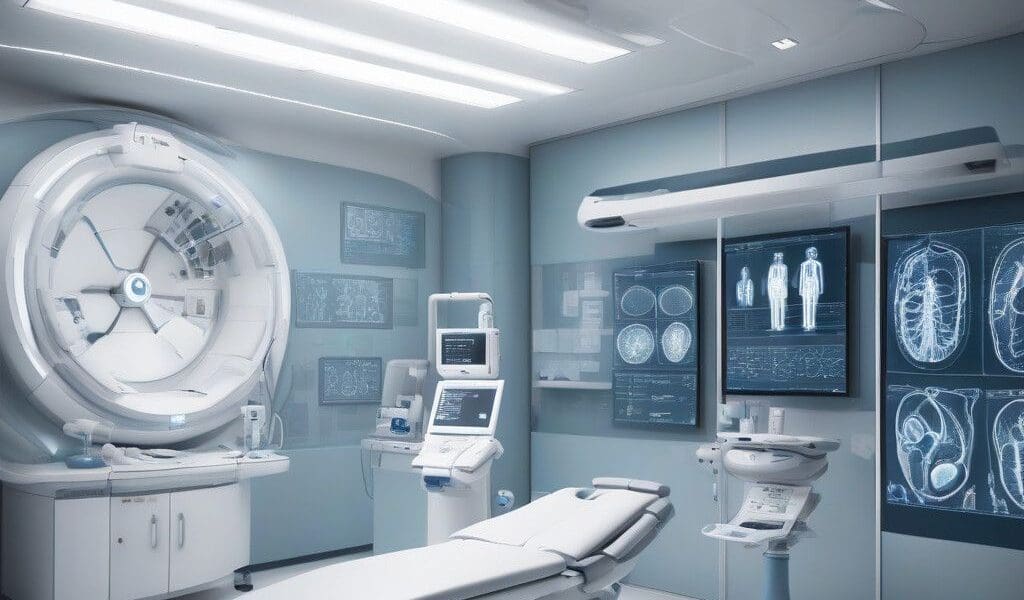ChatGPT Shows Superior Diagnostic Skills Over Radiologists
Recent findings from a study conducted by Osaka Metropolitan University reveal that ChatGPT, a product of OpenAI’s advanced AI models, has outperformed radiologists in diagnosing brain tumors. This attention-grabbing result holds significant implications for the future of medical diagnostics. By analyzing the diagnostic accuracy of ChatGPT using 150 MRI reports, the study highlights the potential for AI to enhance healthcare delivery.
According to the study, ChatGPT achieved an impressive accuracy rate of 73%, surpassing neuroradiologists who had a 72% accuracy rate, and general radiologists at 68%. This performance suggests that AI might soon complement and even enhance human expertise in critical diagnostic processes.
Understanding the Accuracy Variation
The accuracy of ChatGPT was not uniform across all reports. The AI’s performance improved significantly when evaluating reports authored by neuroradiologists, where it hit an 80% accuracy mark. However, its effectiveness dropped to 60% when analyzing reports from general radiologists. This discrepancy raises important questions about the factors influencing AI’s diagnostic capabilities and suggests that the training data’s quality, particularly the expertise of the report authors, plays a crucial role.
These findings highlight the necessity of further exploring how AI can be calibrated to function optimally across various diagnostic contexts. It also underscores the importance of collaboration between human experts and AI technologies to achieve the best patient outcomes.
The Future of AI in Diagnostics
Expanding the scope of this research, the team led by Yasuhito Mitsuyama aims to investigate AI’s applications beyond radiology. The overarching goal is to enhance diagnostic precision in diverse fields, potentially alleviating some of the burdens faced by healthcare professionals. The integration of AI in medical diagnostics may not only streamline processes but could also provide more consistent and reliable results, improving overall patient care.
For instance, as imaging technologies advance, the complexity of interpreting such images increases. AI, equipped with vast databases and learning algorithms, can assist medical professionals by highlighting anomalies that may occur in scans. AI systems like ChatGPT could ideally act as an initial filter or a second opinion, ensuring that no critical details are overlooked in a diagnosis.
Implications for Medical Education
Mitsuyama’s team also emphasizes the potential of AI in medical education. By using AI to simulate diagnostic scenarios, future medical professionals could sharpen their skills in interpreting complex data and honing their analytical abilities. This innovative approach to training may equip new generations of healthcare practitioners with the tools necessary to work alongside AI technologies effectively.
The study’s results spark an important conversation about the role of AI in the medical field. While AI systems, such as ChatGPT, demonstrate remarkable potential, concerns regarding reliance on technology in critical healthcare decisions persist. There is a pressing need for balancing AI capabilities with human judgment, especially given the ethical considerations surrounding patient care.
Moreover, fostering an environment where AI is seen as a partner rather than a replacement can help mitigate fears about job displacement within the medical community. Instead of viewing AI as a competitor, embracing its capabilities as a tool for enhanced diagnostics could pave the way for more comprehensive patient care.
Final Thoughts
The groundbreaking study from Osaka Metropolitan University shines a light on the considerable advantages AI brings to the medical field. With ChatGPT’s promising results in diagnosing brain tumors, healthcare professionals must stay informed about how technologies evolve. Ongoing discussions about ethics, practical applications, and future educational strategies will be critical as we integrate AI deeper into healthcare systems.
By prioritizing collaboration between AI systems and medical imaging experts, we can harness the strengths of both to improve diagnostics and patient outcomes. The potential of AI in healthcare is immense, leading us to a transformative era in medical diagnostics where technology and human expertise coalesce for better healthcare delivery.








